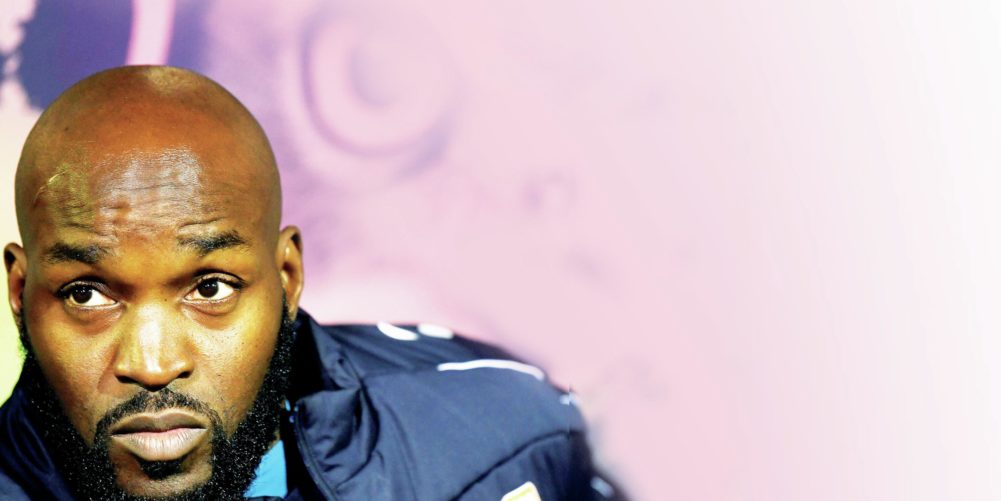Hamlet had my heart but now I am ready for a return to the dug-out…


PROMOTIONS, play-off heartache, booming crowds, exile and threat of extinction – Gavin Rose saw more than most during 13 years as Dulwich Hamlet manager.
So it’s little wonder he needed some time to reflect and recharge following his departure from the National League South club in September.
“The natural thing would have been to take the next opportunity that came – and there were a few,” Rose says. “I just decided I wouldn’t be able to give that justice any club deserves. By being attached to a club for so long, I needed that attachment to go and I needed, for myself, to spend a bit of time with the family, do something I don’t normally do, spend time with friends – abit of me time, really.”
Rose, 45, put everything into his reign. When he took over they were in Ryman Division One South. They won that title in 2013 – after two play-off defeats – to reach Step 3 as the club saw crowd numbers explode, often exceeding 2,000 as they pushed for another promotion.
They also reached the FA Trophy quarter-finals before bouncing back from two more play-off final losses to win at the third attempt against Hendon in 2017-18.
The final months of that season had been an ordeal off the pitch. Caught in the middle of a dispute between landlords and the council, they were kicked out of their Champion Hill home and exiled at Tooting & Mitcham United.
By then his role had become much more than manager. He was one of the figurehead of their battle to survive as Non-League‘s famous name grabbed widespread attention.
It’s perhaps why having poured so much of his energy into the club the sudden ending to his era in September caught him off guard.
“Sometimes these things don’t end the way you want them to – on both sides… hindsight is a great thing,” Rose says. “We didn’t start the season badly but we had a crazy amount of injuries – nine or ten who would either be on the pitch or on the bench were out injured over a period.
“We just had a really rotten time in pre-season leading into the season and lost games on another day we wouldn’t have, especially with the amount of players we had out.
“So, taking a long-term view, you would have thought we’ll get these players back and we will be fine.
“But to be quite honest, I think I probably overstayed my time at Dulwich. I stayed with my heart. I didn’t make decisions for myself, which, selfishly, I probably should have.
“The club, it’s been well-documented, have been in some crazy times and the existence, even when we got back to the stadium, was a bit frail and always about keeping some sort of stability for the club.
“Again, you make decisions like this because you’ve been there for so long and it stops being about you as it’s about the project and cause. If I was being a bit more selfish I probably would have moved on a couple of years beforehand.”
It’s no surprise there were offers from elsewhere down the years. Not all sat comfortably.

“When news was going around the club was getting kicked out (of the ground) and when we were actually exiled, that’s when I had the most interest – that felt wrong,” Rose says. “It felt quite wrong to think about moving on knowing the club was in a bad position so I held firm. Once you do hold firm you think, ‘I might as well see this through now’.
Triumphant
“So, like I say, I moved with my heart. Do you know what? I don’t really regret that. I believe I probably did stay too long. But I don’t regret it because I did it with the right intentions.”
Rose says their triumphant return to Champion Hill following promotion wasn’t easy either.
“We got promoted in that period and went into a new division with less resources than the division below,” Rose says. “Rightly so, the club was trying to cut its cloth accordingly. Then when we went back to the club, it was great to be back, but the pitch was the worst I’d ever seen it because it had been left to ruin.
“There were so many things out of our control and it took a bit of time to get back the identity of what the club was.
“There were loads of challenges – positive and negative. I developed some really good skillsets along the way.
“When there’s turmoil, you’ve got two days before they close the club and things like that, you learn to manage those situations. You’re managing up and obviously down, keeping everyone calm and not panicking, and making good decisions under pressure. It wasn’t just about managing pitch side, it became a lot more than that.
“You learn through the hardship. I gained a lot of experience from those situations.”
The club have moved to a day training model and the National League is the ultimateaim, somethingRose thinks canbe achievedwhen the clubcanget intoa new ground, with thatabigfocus.
But there were plenty of othersuccess stories from histime, not least the production line of players whoprogresseded through theranks into the Football League and, in the caseof Ethan Pinnock, currentlyin the Premier League.
Rose’s Aspire Academy – and its link with theclub are proving the perfectmarriage for playerdevelopment.
“From the start, the firstthing wasn’t to makeprofessionals, it was really about givingkids an op- portunityto get educated and develop their skills,” Rose, who worked closlely with assistant Junior Kadi, says. “Then the opportunity to play for Dulwich was great because the synergy was there with the partnership.
“So we got boys playing first-team football at a relatively young age. Because we weren’t well resourced, this was going to be our way of bridging the gap to develop young players and getting them on the pitch for not that much money. That’s how we were able to compete.

Foundation
“Players likeNyrenClunis who played fortenyearsin the first team –unbelievableser- vice. We’vehad others who havegiven sev- en oreight years.
“That gave the club stability and also an identity of seeing local players come through – some long term service and others who have gone onto bigger things. Erhun Oztumer, Ethan Pinnock and many more. That was the foundation.
“What we found is we needed a reserve team. The club wasn’t ready to commit to that because it would have meant more maintenance on the pitch, travel cost, training costs – you don’t make money doing a reserve team! It meant the gap from youth football to the Conference South was quite big.
“That’s probably why in the last couple of years we’ve been unable to get as many boys on the pitch as we had done previously.
“From 18 to going on to a pitch with players who, some of them, may have played 300 League games, was going to be difficult.”
Young footballers need the stage to flourish and, Rose believes most crucially, honesty.
“Some lads come in and say, ‘Look, I’ve had enough of professional football, I just want to play and have fun’,” he says. “They’re saying that but you know, deep down, they’d love to get back in.
“So you almost go to them, ‘Come in and have fun, do the right things and we will help you’. All of a sudden they want to give it a go again because they get that love back in an environment they can excel but not feel overly judged or pressured. That’s what we try to provide.
“There are different characters. Some lads might appear to have really bad attitudes. Actually they just need an understanding ear – or someone who will be really honest with them.
“Some, at the age of 21, 22, say we’re the first ones who have told them the truth. Even on the journey of being at a pro club, you’re there from 12 and leave at 21 and no one has been honest with them to say, ‘Look mate, you’re being a bit lazy and that’s why you’re not progressing’ or, ‘You need to do a bit more of this or that’.
“It’s literally, ‘Oh yeah, you’re doing all right’. The next minute you’re released!
“That becomes very difficult to deal with because they’ve not been given the tools to bridge the gap and be successful.
“That’s been a common theme we’ve come across. We say we will be honest with you but it will be with love. This is the truth, this is where you’re at, we’ll work together to bridge the gap.
“Sometimes you can, sometimes you can’t. But at least you’re giving it a go.” And Rose is ready for go again too. “I’m at that point now where I would be really interested to see if there are any opportunities,” he says.
“The reality is it might be next season. One thing I don’t want to do is pray on someone’s downfall so I get an opportunity. That’s not what I’m about. So there might be one now, there might be one in the summer – whenever that opportunity comes, I’m ready.”






















